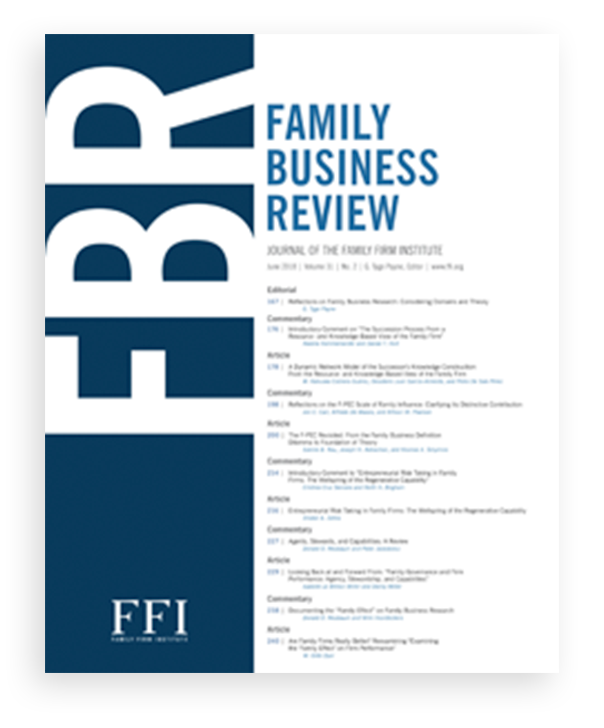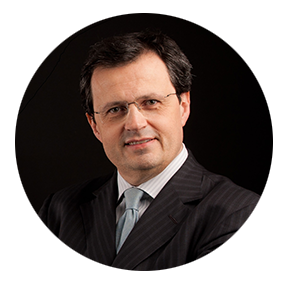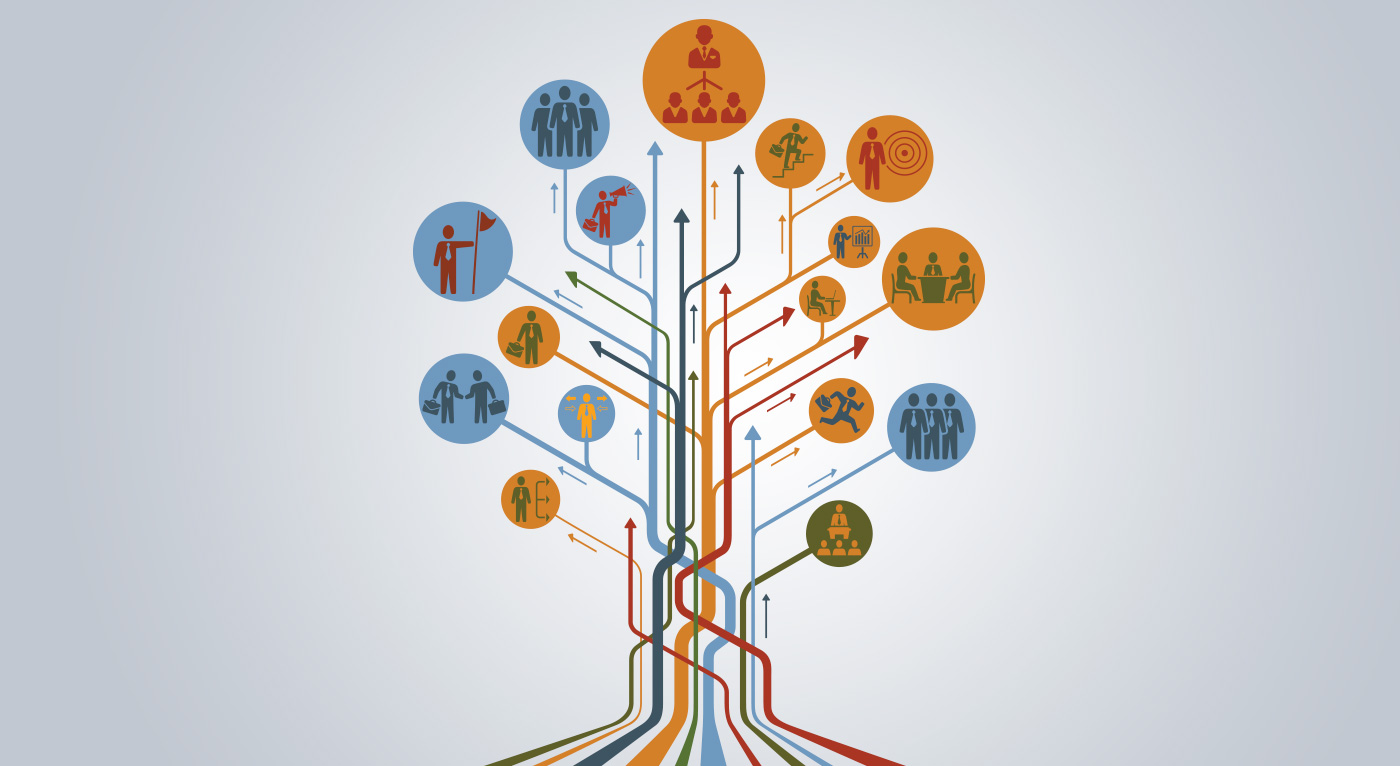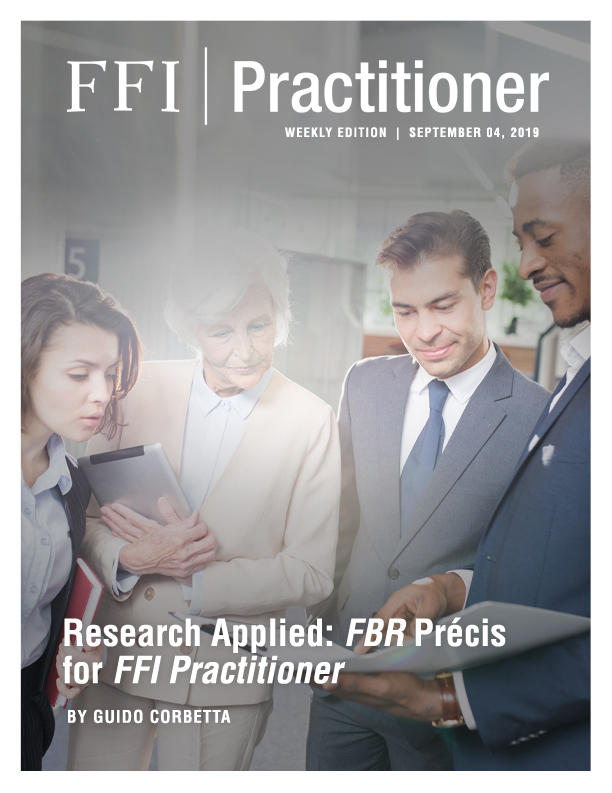Research Applied: FBR Précis for FFI Practitioner

In this week’s FFI Practitioner, we are pleased to share a précis of “Multilayered Socialization Processes in Transgenerational Family Firms” – an article that appears in the September 2019 issue of FBR. Thanks to Guido Corbetta of the FBR Research Applied Board for sharing a summary of the research’s key findings as well as examining practical implications of the research for advisors in the field.
Socialization is strictly related to how older family business members can transmit capabilities and skills to the next generation. So far, many researchers have focused on the internal socialization layer, “where older family members transmit knowledge and values to the young family members in the contest of the workplace.” Succession planning is ultimately the previous generation’s responsibility. Bika, Rosa, and Karakas (the Authors) suggest that there are two other layers of socialization processes that overlap and interact:
- Interactive socialization, “where younger members socialize with a wide variety of stakeholders and peers.” Self-knowledge of the younger generation is derived from social interaction with many sources;
- Experiential socialization, “where younger family members rely on self-directed learning to make sense of shifting social, economic, and business frames of reference.”
Findings
Using the case of McKay and Mills Construction Company, a Scottish medium-sized firm founded in 1925 and now in its fourth generation with around 30 shareholders, the Authors conclude that during the first round of family business succession (finished at the beginning of the 1960s) from the founder (Anthony) to the sons (Donald and Frederick), younger generations focused on internalizing family business values such as obedience to the first generation and harmony. The socialization process was rooted in repetitive task-based “on the job” learning over a long period of time. Donald—second generation leader —due to his long apprenticeship, reached a personal understanding of the detailed practices of the firm and he was able to take “a very hands-on” managerial approach. This internal socialization process was coherent with the low grade of internal and external change.
Sidebar

This article appears in the September 2019 edition of Family Business Review
During the second round of succession, from Donald to his son Bill and to his nephew David, the younger generation advanced design-based innovation as a result of their interactions with educational networks, peers, and other social or professional groups. Following Donald’s death in 1993, David and Bill (third generation) led the company with a more hands-off leadership style, listening to the views and opinions of diverse stakeholders and adapting to their business environment that included nonfamily directors. When internal and external change is moving faster, interactive forms of peer and professional socialization become more relevant.
A fourth generation—Alan, Mary, and Rob—began to involve themselves with the company after 2000. The change of context was more rapid and deeper. Value creation of the company was delivered through constant iteration with a turbulent wider environment that required new corporate and competitive strategy. Some shareholders got disoriented and decided to sell their shares. The current position in the company of the fourth-generation members is an independent professional choice, and they pursue opportunities based on their own experiences and in self-directed learning, recognizing the inadequacy of previous family attitudes and business practices (experiential socialization). During this process, older and younger generations were involved in a “resocialization” process where they had to change previous attitudes, goals, and practices – they had to unlearn the old ones and replace them with new ones.
“Family businesses should prioritize equipping all their members (old and young) for the unexpected and the external rather than for the pursuit of longevity, value transmission, and harmonious internal ties.”

“Family businesses should prioritize equipping all their members (old and young) for the unexpected and the external rather than for the pursuit of longevity, value transmission, and harmonious internal ties.”
Implications
Two implications of this interesting research are useful for entrepreneurial families:
- there are different forms of socialization; and
- the choice of one major form of socialization is dependent on the influence and pressures of wider social and economic forces.
The most important implication, though, is that in certain circumstances, attitudes and skills of the older generation, conscientiously passed on to their children, may be active contributors to business failure. When change is driven by innovation, the new generation has to adopt an entrepreneurial approach. Family businesses should prioritize equipping all their members (old and young) for the unexpected and the external rather than for the pursuit of longevity, value transmission, and harmonious internal ties.
As Alberto Falck, the founder of the Italian chapter of Family Business Network, wrote in a letter to his children: “You won’t simply be ‘heirs’ who are expected to manage the patrimony left by our founder. You’ll be re-founders. Every generation re-founds the company, of course based on what the previous generation left, but also renewing the company to bring it up to pace with the times, or even changing it completely.”
Resources
1 Merton, R.K. (1957). Social theory and social structure. Glencoe, IL: Free Press.

Related Article

“Is Traditional Successor Induction Still Relevant for Family Firms?” by Zografia Bika, Peter Rosa, and Fahri Karakas
